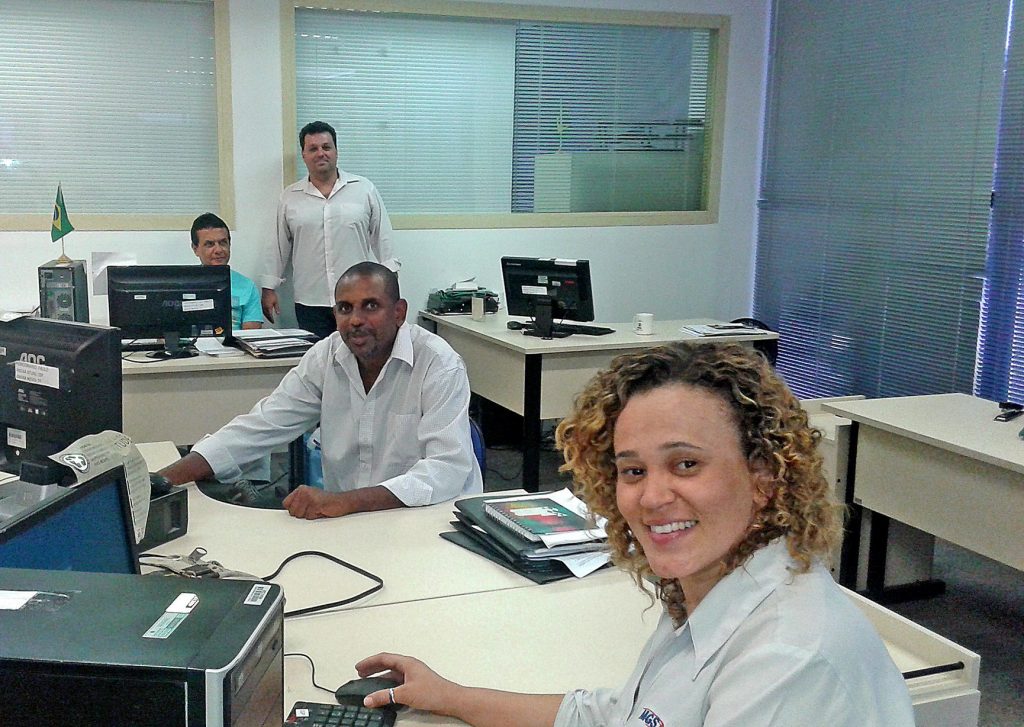How can a clean office save you money?
Germs are everywhere in the office – the average work desk can be up to 100 times less hygienic than your kitchen table, and 400 times dirtier than the average toilet seat. When you’re working near other colleagues, it’s no wonder that germs and illnesses can spread so quickly, leading to several employees needing sick days away from the office.
Although hiring an office cleaner may seem like an unnecessary cost, there are many reasons why keeping your office clean could actually save you money. Together with DCS Multiserve, an industrial cleaning company, we investigate how.
A recent report revealed that sickness absences cost employers on average around £29 billion per annum. Here, we discuss the cost of sick days versus the cost of keeping your workplace clean and germ-free. Could a clean office save you money in sickness pay-outs?
Office germs
On workplace equipment, germs can thrive and multiply – the average keyboard is home to approximately 16 million microbes alone – that’s around 3,295 microbes per square inch of your keyboard. Compare this to the fact there are only around 49 microbes per square inch of a toilet seat, and it suddenly becomes apparent how dirty our keyboards are. And that’s no surprise when only 3% of offices are said to sufficiently clean their equipment – and 11% of employees never clean their keyboards.
Germs that lead to the common cold can survive up to 72 hours on office equipment, this means that you could catch the illness over two days after somewhere has been contaminated. Even more worrying is that more serious microbes such as MRSA can last anywhere between six weeks to seven months, highlighting how important it is to regularly clean work surfaces and equipment.
When it comes to bathroom habits, 32% admitted to not washing their hands after using the toilet, and a further 30% claimed they only use water to ‘wash’ their hands. It is no surprise that 24% of us have faecal bacteria on our hands, which is then transferred onto the surfaces that we touch. One single person carrying a virus will infect 50% of all equipment and fellow employees in the same vicinity within four hours. Killing germs sooner rather than later will reduce and prevent future contamination and the spread of infections around the office.
How much do sick days cost?
A survey was carried out which gathered data from over 670 organisations and just under two million employees on information regarding sickness absence rates and costs. Results showed that during 2014, sickness absence
averaged at 2.8% of working time per annum – that equates to 6.5 sick days per employee. In total, this costs employers an estimated £29 billion a year.
It appears that 2017 is following a similar pattern. So far this year, public sector organizations have witnessed a median of 3.5% of working time lost due to illness (8.1 days per employee) and 2.2% in private-sector organizations (5.1 days per employee). Without your employees, your company’s production rate is limited.
An outstanding 80% of infections spread via contact with contaminated surfaces, suggesting that lack of cleanliness is the reason why your staff are picking up illnesses and infections. Allowing germs to spread around the office can leave employers short staffed and out of pocket, so maybe it’s time to invest in an office cleaner?
The cost of a cleaner
There are many reasonable ways to keep the office sanitary – hand sanitizing wipes and gel, regular desk and keyboard cleans and implementing a no food at your desk rule should help. However, you can’t expect your staff to clean the entire workplace on a daily basis to kill any germs that have set up home around the office. Hiring a cleaner, or cleaning company to clean your workplace is an investment which will in turn help to save you money in sick days.
Companies who currently pay for office cleaning spend on average £13 per hour, per cleaner. However, prices can vary on the size of your premises and what you require the cleaner to do. As explained by Ideal Cleaning who provide office cleaning across the UK, “a full site survey is the best way to accurately quote for your cleaning needs” and so you’d need the company to visit your space first. You can get an estimated quote over the phone, but that would be subject to an actual site survey. Quotes are unique to each business. It’s likely that you will not need your cleaner to work every hour of the working day – in most cases, a few hours are sufficient — that’s if the company you employ provides a reliable and quality service.
Companies who currently pay for office cleaning spend on average £13 per hour, per cleaner. However, prices can vary on the size of your premises and what you require the cleaner to do. Quotes are unique to each business. It’s likely that you will not need your cleaner to work every hour of the working day – in most cases, a few hours are sufficient — that’s if the company you employ provides a reliable and quality service.
In practice, if you hired a cleaner for two hours, each working day, it would cost you around £130 per week to keep your office clean. Presuming you require a cleaner for 50 weeks of the year, with two weeks off to account for Christmas and any office closures, it would cost approximately £6,760 per year, which is a worthwhile investment to prevent the spread of infections around the office, and save you money in staff sick pay.
Sources
https://www.bhf.org.uk/-/media/files/health-at-work/health_at_work_economic_evidence_report_2016.pdf
http://www.1stcompucare.co.uk/facts/
http://www.personneltoday.com/hr/sickness-absence-rates-and-costs-revealed-in-uks-largest-survey/
https://www.cleaningservicesgroup.co.uk/5/about-us/5/news/452/how-clean-is-your-office/


One way to reduce receiving other people’s germs is to cover up your drink container, no sippie lid, no straws, no slider types of lids. The container must be completely covered, use a drink container protector like the Bug Not and stay healthier.